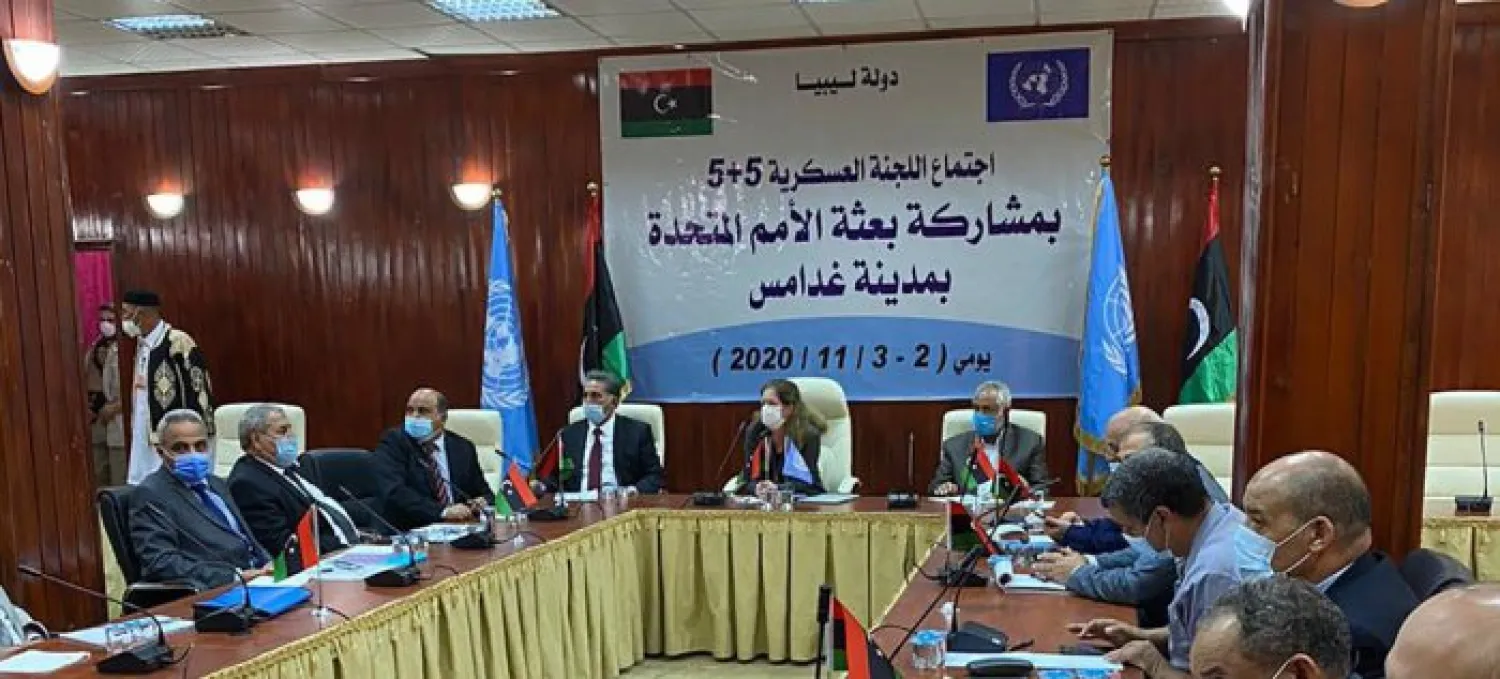Military officers from Libya’s warring parties, the Government of National Accord (GNA) and the Libyan National Army (LNA), have agreed to practical steps towards implementing a ceasefire agreement, the UN mission in the country, UNSMIL, has reported.
The announcement follows concluding the fifth round of talks of the Joint Military Commission (JMC) which comprises five members each from the GNA and LNA.
Ghadames, a northwestern Libyan town, hosted the JMC meeting.
According to the agreements reached in Ghadames, GNA forces will prepare to withdraw from both Sirte and al-Jufra.
The withdrawal is also a part of an accord signed in Geneva last month.
Fituri Ghribil, GNA member of the JMC, said all forces will be withdrawing from Sirte and Jufra gradually as the two areas are considered lines of contacts according to the latest agreement made by the two parties in Ghadames and before that in Geneva.
Discussions at Ghadames centered around mechanisms for carrying out the agreement, including the establishment of sub-committees, according to a statement issued by UNSMIL.
Monitoring and verification mechanisms, including a role for international observers, were also discussed.
Recommendations issued at the meeting, which were 12 in total, also outlined the formation of a military sub-committee to supervise the return of forces to their headquarters, and the withdrawal of foreign troops from contact lines.
The subcommittee, which decided to have its headquarters in Hun and Sirte, will hold its first meeting "in the near future" in Sirte with the participation of the JMC and UNSMIL.
JMC recommendations included a request that the UN Security Council expedite a binding resolution to implement the provisions of the 23 October ceasefire agreement signed in Geneva.
“In the ceasefire agreement, there is a timeframe given for the departure of mercenaries and foreign forces. We have now detailed discussions on the monitoring mechanism for all of that but there is a clear sovereign Libyan request [in this regard] right now, that we have seen in the ceasefire agreement itself,” UNSMIL chief Stephanie Williams told reporters after the meeting at Ghadames.
Williams also said that a meeting will be held on Nov. 16 in the eastern city of Brega to unify the divided Petroleum Facilities Guard (PFG), in the presence of the commanders of PFG, the chairman of the National Oil Corporation, and UNSMIL.
It has been agreed to exchange all prisoners, remove landmines in cooperation with the UN teams and the General Intelligence Service, combat hate speech, and immediately resume flights to the southern cities of Ghadames and Sabha, she added.









